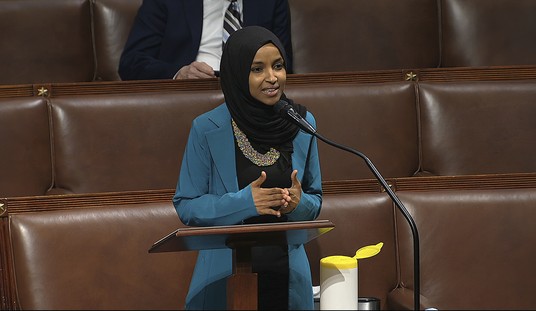WASHINGTON – The consequences of across-the-board spending cuts forced on the federal government, better known as sequestration, have landed at the nation’s airports, according to the FAA, and the only thing uglier than the long lines at ticket counters and tote boards announcing further delays are the recriminations winging between Democrats and Republicans.
The furlough program instituted by the Federal Aviation Administration to deal with the budget cuts went into effect on Monday, resulting in long delays and cancelled flights across the nation as control towers operated with fewer air traffic controllers.
Since Sunday, 10 percent of the FAA workforce has been on furlough. Each employee faces up to 11 forced days off before Sept. 30 unless changes are made to the sequestration law. About 15,000 air traffic controllers are affected.
According to the FAA, more than 1,200 air system delays attributable to staffing reductions occurred on Monday, with more than 1,400 additional delays coming as a result of weather. The situation improved on Tuesday – by a bit. The agency reported more than 1,025 delays attributable to furloughs and 975 additional delays caused by other factors.
During the worst day at America’s airports in 2012, about 3,000 flights were delayed. That number could double on a daily basis under sequestration, the agency claims.
Appearing before the House Appropriations Subcommittee on Transportation, Housing and Urban Development and Related Agencies on Wednesday, FAA Administrator Michael Huerta told lawmakers that his agency had no options.
“We have to reduce our budget by $637 million between now and September 30,” he said, noting that the various grant programs were exempt under the sequester, meaning the cuts “fall disproportionately on the operating side of the budget.”
The furloughs will save the FAA about $220 million.
“To reach the large number we need to reach by Sept. 30, we have no choice but to look at furloughs,” he said. “It will have no effect on safety but what will suffer will be efficiency. When we have to reduce the number of controllers we have available to handle air traffic, what it means is that we have to do such things as combine sectors, and we need to reduce arrival rates at major airports and we need to reduce departure rates at major airports and the capacity of our major on route facilities. The results from that are ground delay programs. What we’re focused on first and foremost is to retain safety.”
The explanations did little to assuage Republicans who blame President Obama for failing to take steps to soften the blow of sequestration. Rep. Hal Rogers (R-Ky.), chairman of the House Appropriations Committee, told Huerta that the panel wasn’t informed of the consequences on air travel, asserting that “this imperial attitude is disgusting.”
Rogers rejected claims that Congress, which wrote and passed the sequester legislation signed by Obama, was to blame for the situation and said that the president should have “come to the table” to develop ways around it.
“Instead he just starts shutting down airports,” Rogers said.
Democrats said the GOP shouldn’t be surprised at the results of the legislation they supported.
“Some here in Washington, D.C., claim that the effect of such cuts will be minimal but (Transportation) Secretary (Roy) LaHood has spoken out about the real impact these cuts will have on the FAA and our aviation system,” said Sen. Patty Murray (D-Wash.), chairman of the Senate Budget Committee. “He talked about how sequestration means that the FAA will furlough its air traffic controllers, close down contract towers…’’
Murray said the FAA made it clear that it wouldn’t sacrifice safety.
“Instead, the agency will reduce its services while ensuring air travel remains safe,” Murray said. “However, reductions in air traffic control services will translate directly into an increase in travel delays.”
Sen. Dan Coats (R-Ind.), a member of the Senate Transportation Committee, sent a letter to LaHood asking him to halt the furloughs until the FAA analyzes the situation and develops alternatives.
“This is mismanagement at its worst — it’s incompetence at its worst,” Coats said. “It’s a failure to do what every agency has been required to do – plan for this. This administration needs to step up to the plate and take some accountability. The president created and signed into law the sequestration policy. His administration has known for more than 12 months that this policy was imminent. And they did nothing to prepare effectively.”
But the White House and its Democratic supporters insist the blame lies elsewhere. Jay Carney, the president’s press secretary, said Congress adopted the sequester as a means to cut spending and reduce the deficit and Republican lawmakers are now facing the consequences of their actions.
“The fact is Congress had an opportunity, but Republicans made a choice,” Carney said. “And this is a result of a choice they made to embrace the sequester as — and I’m quoting Republicans – ‘a victory for the Tea Party’ and ‘a home run.’ I’m not sure if leaders in the Republican Party and that Congress agree with those assessments now, because they’ve obviously changed their position on the sequester a variety of times over the last several months.”
Sequestration, Carney said, should never have become policy.
“The president has put forward a comprehensive, balanced approach to deficit reduction that would eliminate the sequester,” Carney said. “But this is Congress’s responsibility. It needs to take action.”
Carney said the FAA is taking the only route available to it.
“The FAA has initiated a series of cost-saving measures, both personnel and non-personnel related, including a hiring freeze, restrictions on travel, termination of certain temporary employees and reductions to contracts, among other savings,” he said. “But the fact is 70 percent of the FAA’s operations budget is personnel. So there is simply no way to avoid furloughs.”
Some lawmakers are looking for ways around the problem. Senate Democratic Leader Harry Reid, of Nevada, announced plans to use about $650 billion from the Overseas Contingency Operation fund, saved as a result of the end of the conflicts in Afghanistan and Iraq, to pay down the sequester, providing the FAA and other agencies with some breathing room.
“I think we should do something about sequestration — it’s important we do,” Reid said, adding, “we could do it for five months. During this five-month period, we could come up with something longer-term.”
Meanwhile, Sens. Richard Blumenthal (D-Conn.) and Jerry Moran (R-Kan.) already have introduced legislation to prohibit the Department of Transportation from closing any air traffic control towers for the remainder of the fiscal year and in FY 2014 as well.
“The FAA has $50 million necessary to sustain all 149 air traffic control towers and the closing is a misguided decision causing needless harm to employees, their communities, and regional economies, as well as air travel,” Blumenthal said.
“The administration’s insistence on deliberately inconveniencing air travelers instead of prioritizing their safety falls right in line with its history of putting politics before common sense,” Sen. Moran said. “The FAA’s recent action of delaying the 149 contract control tower closures indicates what we have known all along: the agency’s financial state is not as dire as initially projected. They do have flexibility when it comes to sequestration.”
“Savings can and should be found elsewhere, and the Senate stands ready to work with them on a bipartisan basis to find a solution, but they refuse to come to the table,” Moran continued. “I am baffled by the administration’s continued insistence on putting its top-line message – that we can’t cut a dime without severe consequences – before the safety and well-being of Americans.”
Related:









Join the conversation as a VIP Member